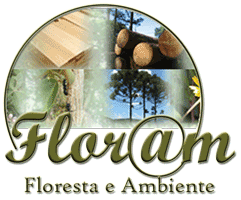SUMMARY
The objective of this paper was study the bioecological aspects of Ibalia leucospoides (Hockenwarth) (Hymenoptera, Ibaliidae) in plantations of Pinus taeda L, attacled by Sirex noctilio. The experiments were realized in José Velho Farm, São Francisco de Paula, Rio Grande do Sul State. Following points were observed: courtship and mating; posture; longevity in function of feeding; populational floatation; parasitism and development cycle. The results indicated that: the females are uninuptials; the duration for posture was in average 2,27 to 3,58 minutes; the females feeded with honey and water had highest longevity; the populational peaks occurred in april (three to five months cycle) and december (annual cycle). The parasitism was 29,05% in the flight of april to may; and 30,09% in the flight, november to January, being higher in stem with average diameter of 8,83 cm. The development cycle was of 90 to 95 days in the first emergency after the posture.

 Thumbnail
Thumbnail
 Thumbnail
Thumbnail
 Thumbnail
Thumbnail


